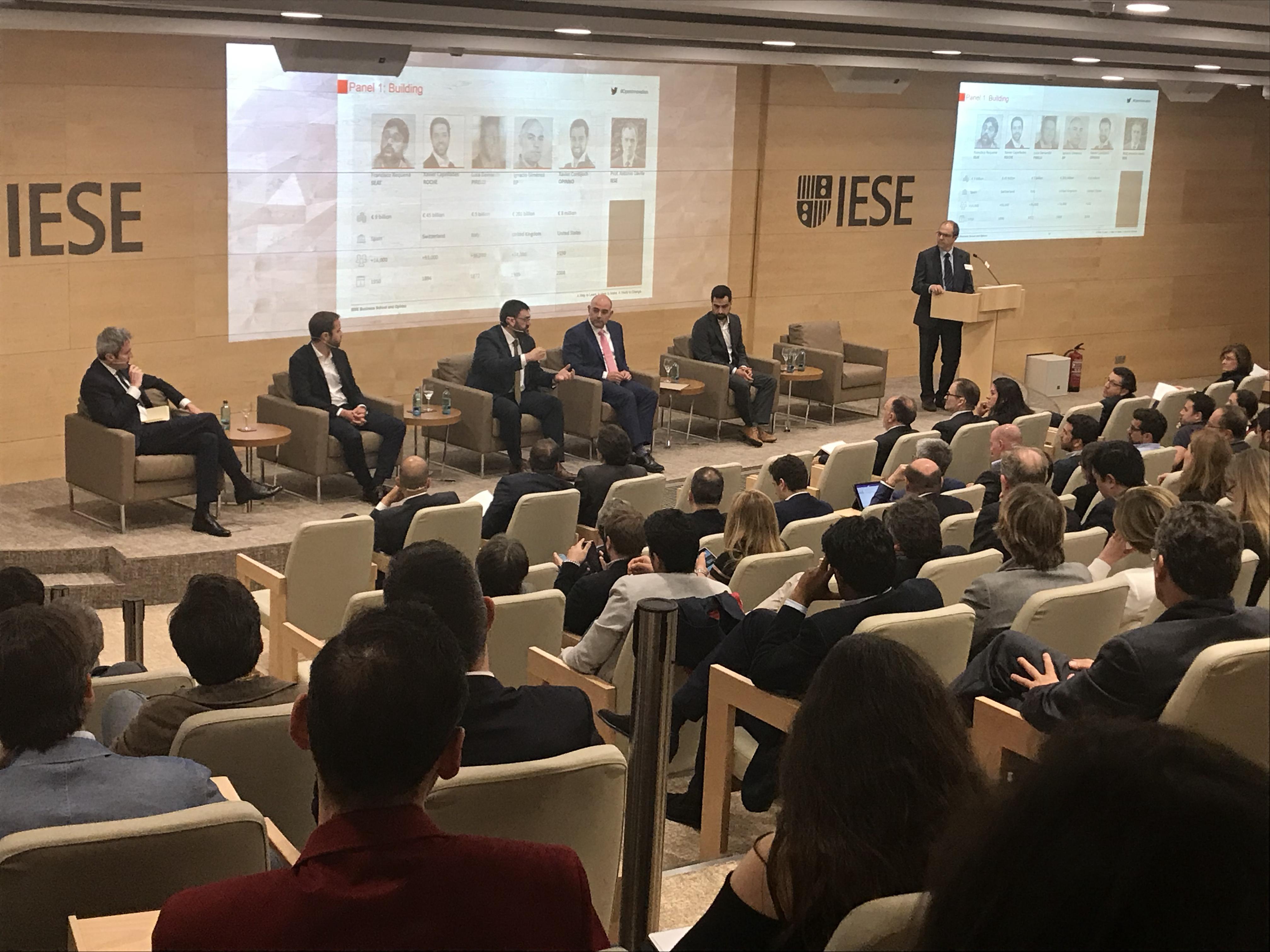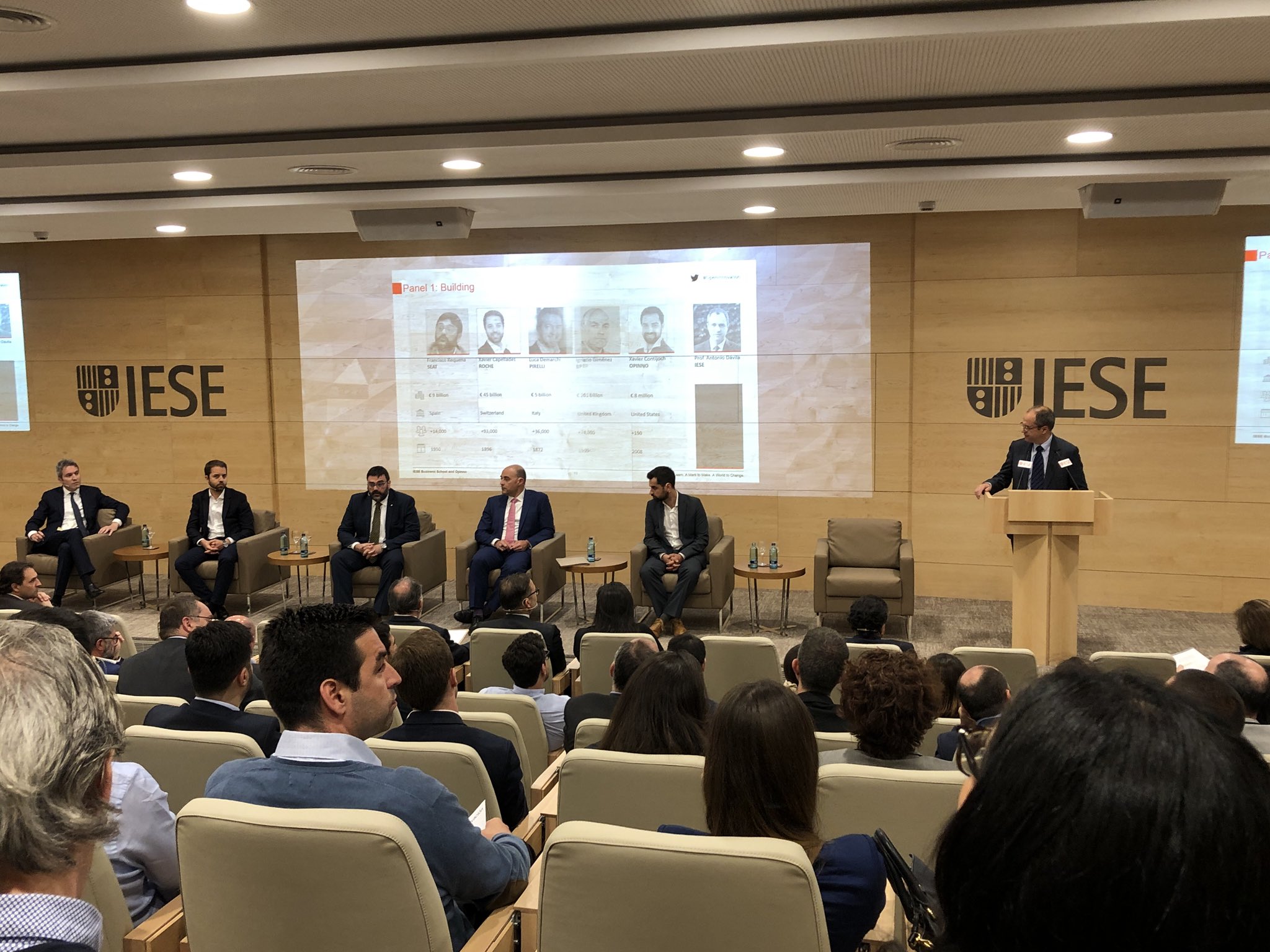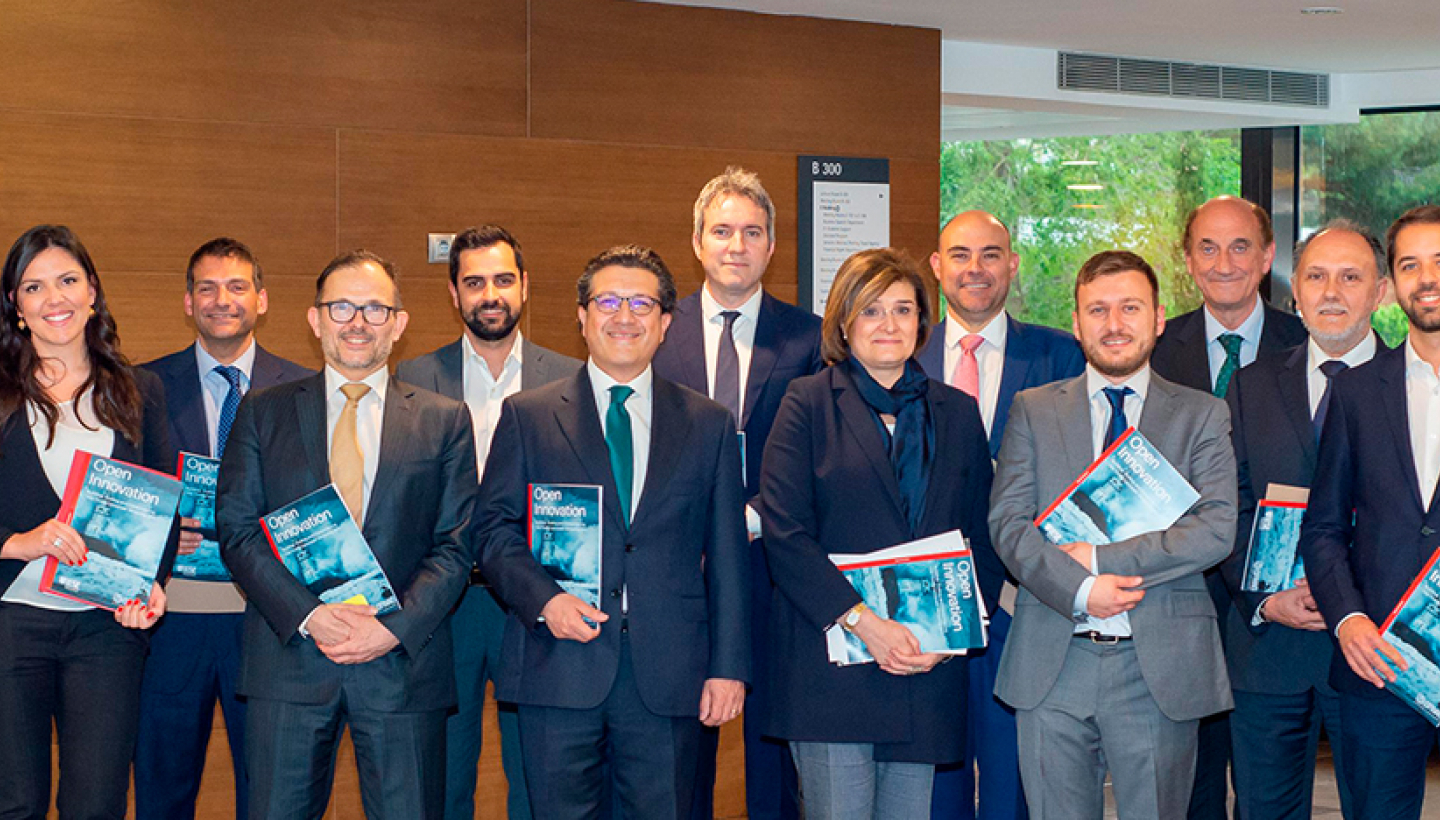Opinno and the IESE Business School have conducted a brand new study on open innovation, the first of its kind in Spain. Tommaso Canonici and Xavier Contijoch represented Opinno as event hosts and organizers.
You can access the study here
Authors of the study, Professor Mª Julia Prats and Josemaria Siota of IESE Business School’s Entrepreneurship and Innovation Center were also present. The researchers Alfonso Gironza, Jordi Prats and Celeste Saccomano of IESE Business School also contributed to the research of the study.
The results were released yesterday in an event which included nearly 300 professionals from over eight countries across Europe and from the United States, among them some of the innovation industry´s most enlightened experts.
The Open Innovation: Building, scaling and consolidating your firms’ corporate venturing unit study was conducted to assess what constitutes best practice in the field and to reflect on the results of an innovation explosion which has been pervasive in all sectors of business.

Focusing on corporate venturing mechanisms as a bridge between innovative start-ups and established firms, the study found that while corporate venturing is a promising solution to source innovation opportunities at speed, the most gainful results are achieved when a mid to long-term view is taken. Large firms must be diligent when designing a model that will be aligned most appropriately with the firm’s objectives and culture.
Researchers offered vital insights into what can be considered best practice for CV collaboration thus far. Their resulting field guide sheds light on how to build, scale and consolidate CV units. There are opportunities, but also challenges involved.
Among the professionals sharing their insights were the chief innovation officers of large firms, CEOs and field experts, who took part in a think-tank. Support came from over 21 institutions.

Professor Mª Julia Prats, co-author of the study and professor of entrepreneurship at IESE Business School said, "In this study, we looked at the CV initiatives of 44 large firms, and analyzed what works and what doesn’t. With all of the startups and CV investments out there, this study should prove invaluable for those building, scaling and consolidating a CV practice."
The results outlined the major indicators of success and failure for CV partnerships. Best practice includes acknowledging the right speed for interaction with start-ups and the distinct staging of interaction moving from prizes to pre-investments in open competitions and so on. A balance of strategic and financial returns must be criteria in the decision-making process.
Plus employees may be used in corporate incubator application. Communication is key; characteristically successful interaction involves informal and simplified hierarchies for inclusive and centralized decision-making.
On the other hand, failure was indicated by the absence of a clear and tangible value proposition for either party. A lack of vision, procedure, and resources to expand the CV unit, which can and must have enough freedom to test new opportunities in the market.



